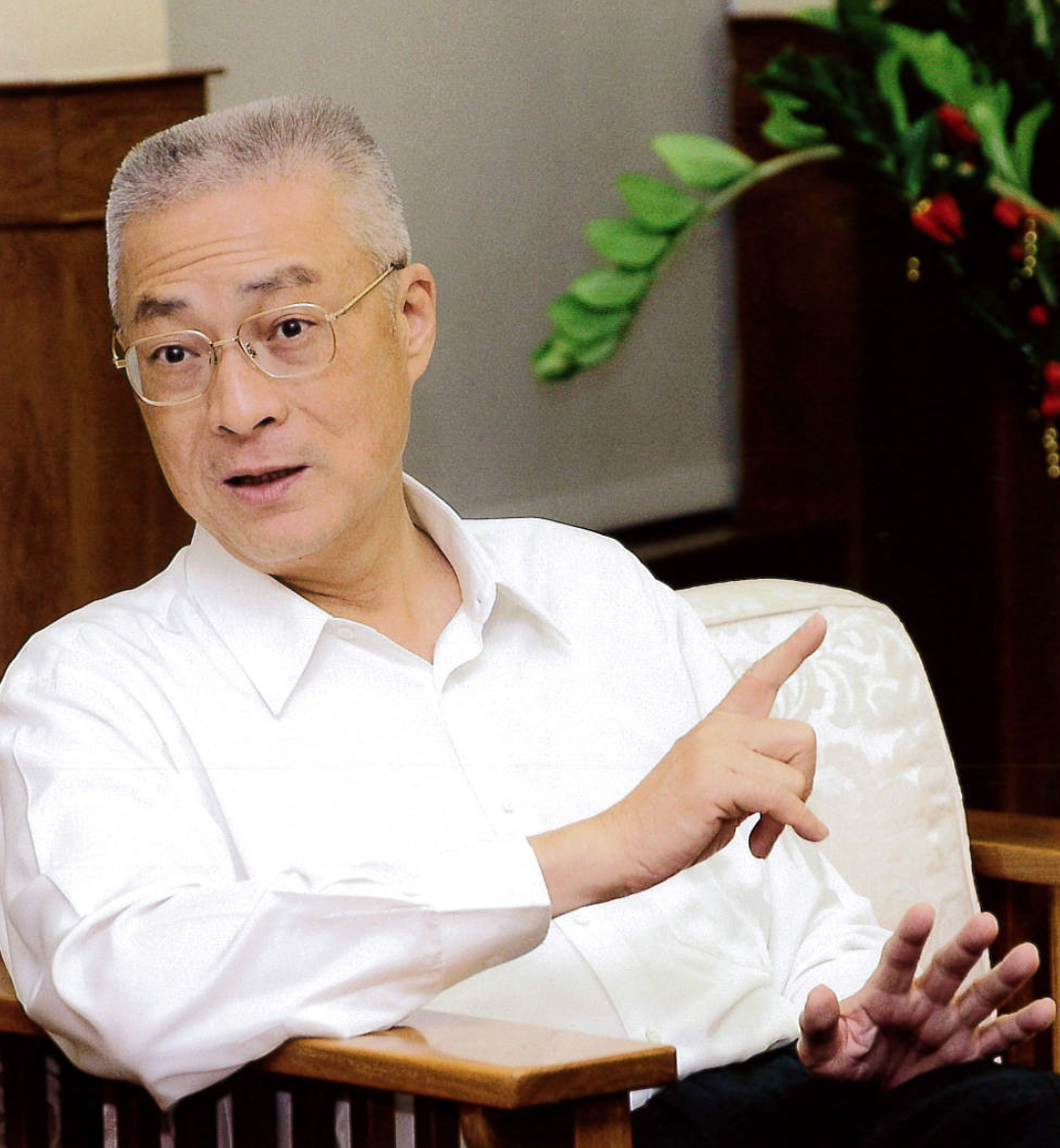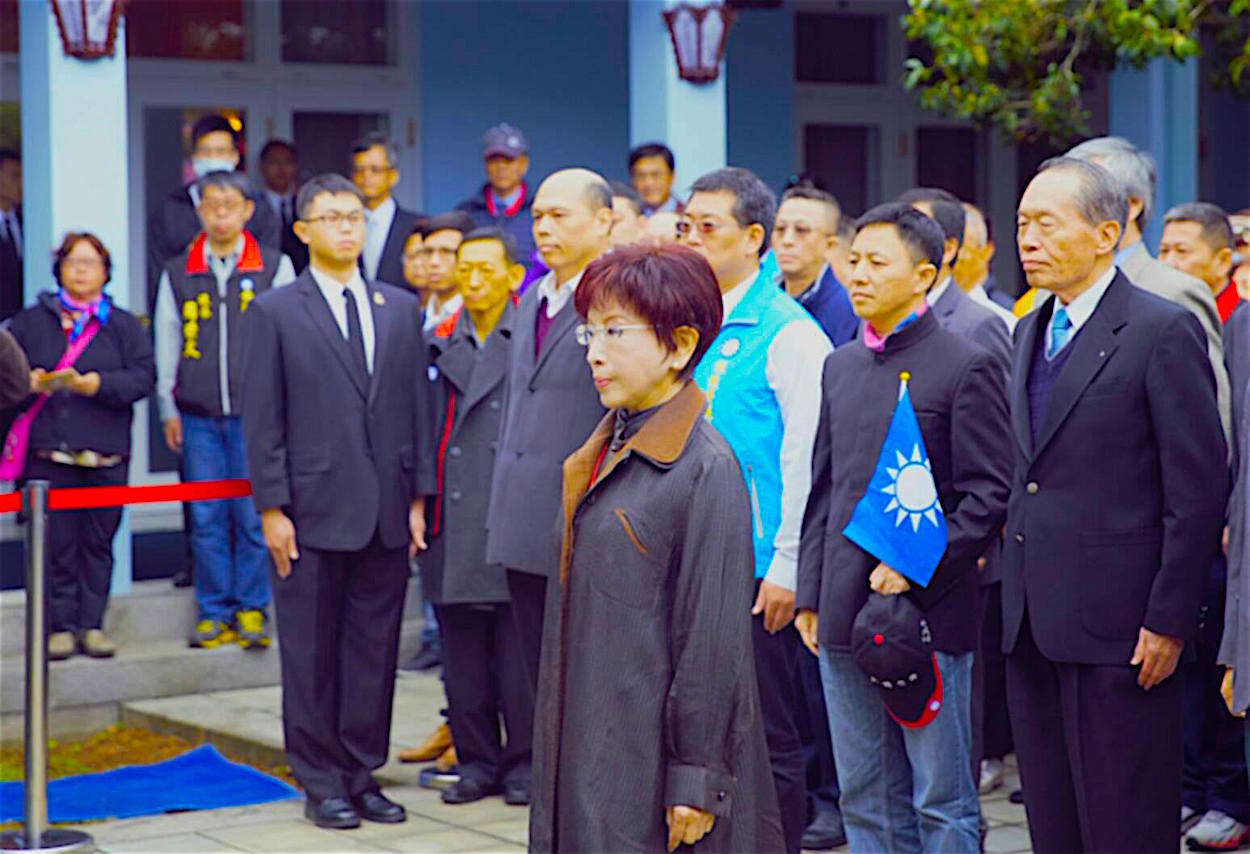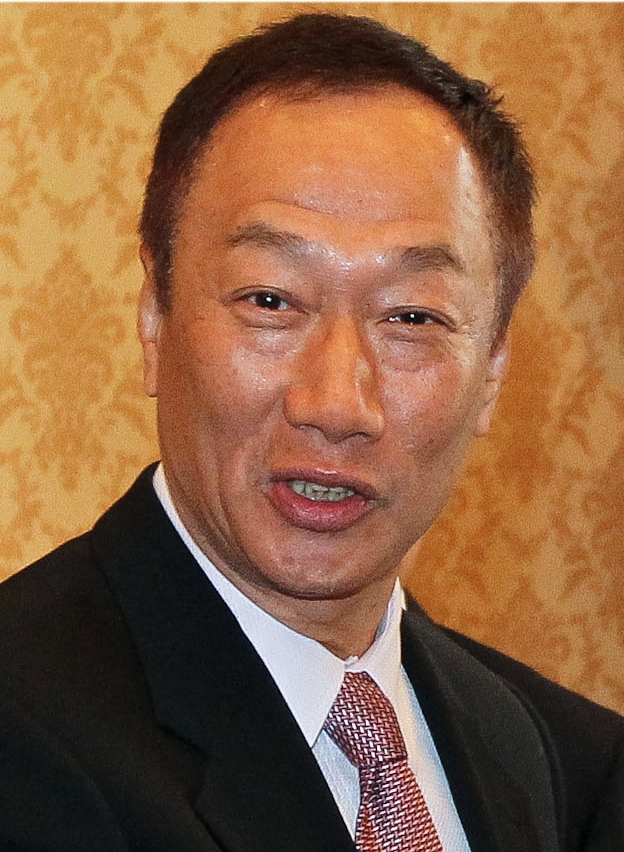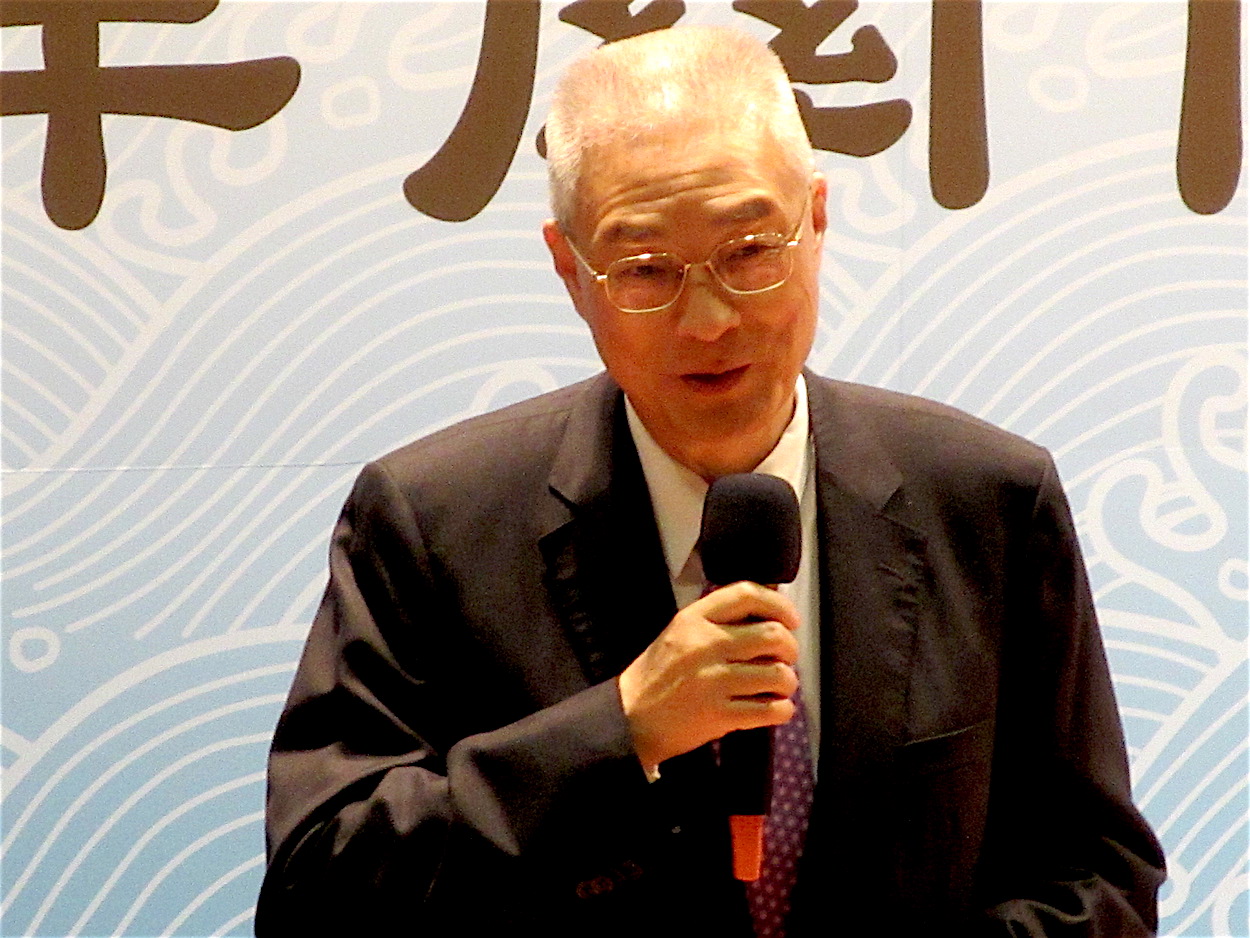by Brian Hioe
語言:
English
Photo Credit: UDN
THE ELECTION of Wu Den-Yih as KMT chair probably does not represent the party stepping back from the brink but a return to something closer to normalcy within the party. This will not, however, forestall the internal crisis within the party, nor does it mark that the KMT will be able to turn over a new leaf in the near future and win back the Taiwanese public. Wu won 52% of the vote, winning more than 140,000 votes out of 272,682. If no candidate had won more than 50% of the vote, the vote would have gone to a run-off. It remains to be seen whether any of the losing candidates will dispute Wu’s victory, however, seeing as accusations vote-buying and corruption have been rampant in 2017 KMT chair elections.
As should go without saying, the KMT has courted controversy after controversy under Hung Hsiu-Chu’s leadership since Hung became chair of the party following the KMT’s overwhelming defeat in 2016 presidential and legislative elections. But although this represented the Taiwanese public rejecting the Ma administration’s pro-China policies, Hung decided that a return to party fundamentals was necessary. Hung also strengthened calls for political unification with China, never mind that the KMT’s defeat in presidential and legislative elections represented that the Taiwanese public rejected the Ma administration’s attempts to facilitate the economic unification of Taiwan and China in order to achieve the eventual political unification of Taiwan and China.
 Wu Den-Yih. Photo credit: Loganyi911/WikiCommons
Wu Den-Yih. Photo credit: Loganyi911/WikiCommons
But it seems that Hung’s calls for a policy of “One China, same interpretation” to supersede the 1992 Consensus was too much for even for members of the KMT establishment. This eventually led to conflict between her and Ma within the party despite the fact that Hung had previously been thought of as a member of Ma’s “Mainlander” faction of the party. In the lead-up to KMT chair elections, party heavyweights Wu and Hau Lung-Bin, who enjoys the support of the “Old Soldier” faction of the KMT as the son of former general Hau Pei-Tsun, seemed those who had the strongest chance of unseating Hung in her bid for reelection. But although Hung did little to steer the KMT in a direction which would allow it to recapture public support, she enjoyed the support of deep Blue diehards within the party, and it was feared that if Wu and Hau refused to cooperate, neither would be able to defeat Hung.
In an effort to hold onto power as KMT chair, Hung resorted to forcing through a series of undemocratic changes to election procedures, and was accused of collaborating with organized crime in order to bolster her votes within the party. Undemocratic actions by Hung included changing the date of elections to an earlier date, to give other candidates less time to prepare for elections, and changing the internal structure of the KMT to limit the voting power of the Huang Fu-Hsing branch of the KMT, which consists of members of the military and their families, and is treated as separate from local branches of the KMT. Namely, Hung feared that the members of the Huang Fu-Hsing would vote for Hau. Many also saw Hung as behind the entrance into the KMT of a number of strange elements, which seemed to be drawn from organized crime, such as known gangsters entering the party as well as nightclub hostesses from Taichung who seemed to work for establishments run by gangsters. Others speculate that this may have been a smear against Hung, a relative outsider to the party establishment who may lack true access to the traditional local patronage networks of the KMT.
Is the defeat of Hung representative of a change in direction for the KMT, then? One suspects not. It was previously speculated that Wu would face internal opposition from within deeper Blue elements of the KMT, seeing as Wu is benshengren Taiwanese. But, at the same time, Wu is a firmly establishment candidate, having served as a colorless party functionary for decades, having served in roles as the appointed mayor of Kaohsiung during the authoritarian period, secretary-general of the KMT, and premier then vice president under the Ma administration.
 Hung Hsiu-Chu. Photo credit: KMT Facebook
Hung Hsiu-Chu. Photo credit: KMT Facebook
Wu is generally seen as someone firmly subordinate to Ma Ying-Jeou and his “Mainlander” party establishment within the KMT. Nevertheless, as a benshengren Taiwanese, of all the candidates that ran in 2017 KMT chair elections, Wu was most popular with the “Taiwanese” faction of the KMT and Wu has significant political networks in southern Taiwan dating back to his mayorship in Kaohsiung.
Perhaps Wu’s victory can be seen as the establishment of the KMT recapturing the party from Hung Hsiu-Chu’s extremist deep Blue insurgency, then. But in spite of his ties to both the “Mainlander” and “Taiwanese” factions of the KMT, one does not really expect Wu to be the candidate who takes the KMT in the direction of localization to Taiwan in the manner of secretly being another Lee Teng-Hui.
To begin with, even if Wu tried, one imagines the public would not be responsive. A younger member of the KMT who took the party leadership in a pro-localization direction might be able to garner public attention, but as a colorless party functionary for decades, and an individual who is close to seventy years old, Wu would not be inspiring enough to capture the attention of the party through attempts to localize the party. Likewise, Wu is highly disliked by many benshengren because of the view that through his membership in the KMT, Wu is something of a race traitor.
Wu’s victory was an overwhelming one, seeing as he won 140,000 votes out of 272,682, whereas Hung came in second with 53,063 votes and Hau came in third with 44,301 votes. One is a bit surprised by the results, seeing as one might have expected Hau Lung-Bin to do better with the results. Hau may still be smarting from failing to win Keelung, a traditional pan-Blue territory, in 2016 legislative elections, something which it was thought would have been an easy victory for Hau, and the attendant loss of face within the party. But one should remember that Hung Hsiu-Chu is not down and out for the count just yet, seeing as Hung won close to twenty percent of the vote. Hung and her political supporters could still prove influential in the future direction of the KMT yet.
 Terry Gou. Photo credit: dilmarousseff
Terry Gou. Photo credit: dilmarousseff
KMT party chair elections this year, however, were unique seeing as that it is highly unusual for as many candidates to run for office as occurred this year. Usually, the party has largely settled on a candidate internally and the KMT party election is only to confirm who the party establishment has already decided will be the next leader of the KMT. The three major contenders this year were Wu, Hung, and Hau, but there were also a number of new, lesser known candidates who ran for office, perhaps hoping that this would elevate them to superstardom in a manner similar to Hung’s meteoric rise when she ran for presidential candidate of the KMT in 2016 despite being a lesser known candidate. However, the break from precedent within the party is reflective of the ongoing internal crisis of the KMT.
With regard to future challenges for Tsai Ing-Wen and her DPP administration, the specter has been floated by many of the candidates of 2017 KMT chair elections that, rather than seeking to run themselves in 2020, they would support Terry Gou as the KMT presidential candidate instead. Gou, the CEO of FoxConn/Hon Hai, has expressed interest in running for president of Taiwan since the victory of Donald Trump in 2016 American presidential elections demonstrated the possibility of businessmen successfully entering politics the world over. The traditional practice of the KMT chair also serving as the presidential candidate of the KMT also ended in the past few years, with Hung Hsiu-Chu’s brief bid as presidential candidate of the KMT during a period when Eric Chu was chair of the party, before Hung later withdrew as presidential candidate of the KMT in favor of Chu.
Gou would also prove a suitable candidate for the KMT because, as a wealthy tycoon, he could fund his own campaign. The KMT, once considered the wealthiest political party in the world by many, currently in in a dire financial state because of the ongoing investigation into illegally acquired assets dating from the authoritarian period which the KMT may still be holding on to, in spite of the supposed dismantling of the former party-state apparatus. As an outsider, Gou also would not step onto the toes of different KMT party factions as an established heavyweight from within the party would in putting themselves forward to run as president, as occurred in the process to decide the KMT’s candidate for 2016 presidential elections. The possibility of a Gou run had many in the pan-Green camp concerned, as polling indicated that Gou would do surprisingly well against Tsai Ing-Wen, and some polls suggested that he might actually beat Tsai.
 Photo credit: VOA
Photo credit: VOA
However, Wu is widely seen as more likely to run for president himself rather than back Terry Gou as candidate. And, seeing as Wu is an uninspiring candidate, it seems unlikely that Wu could either turn the KMT around or win as a presidential candidate in a race against Tsai. Perhaps the DPP should celebrating their good luck, then, given the results of KMT chair elections.
Nevertheless, it is as such that Wu’s election victory probably will not better the state of the KMT. If Wu likely will prove more politically rational in his leadership of the KMT than Hung Hsiu-Chu, Wu’s party history is primarily as a firm supporter of Ma Ying-Jeou. If Hung’s leadership of the KMT has substantially worsened the crisis of the KMT, it was Ma Ying-Jeou’s policies as leader of the KMT which brought the KMT to its present unpopularity, not Hung. So if Wu continues Ma era policies, one expects them to be similarly unpopular. And, apart from the strong possibility of continued challenges from within the party, Wu seems unlikely to be the inspiring leader who will turn the KMT around.

